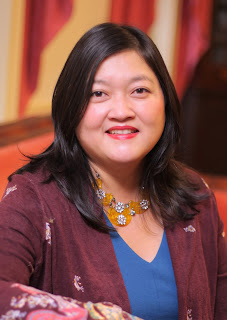Somewhere Under the Rainbow
PSA: Passing under a rainbow will make you trans.
In some folklore, the rainbow’s most prominent sexual trait is its ability to change people’s gender. For Bohemian girls younger than seven years old, passing beneath the rainbow is a transsexual experience. Hungarians are less restrictive and believe that sex changes happen to anyone who passes through the arch. Serbian, French, and Albanian folklore all give the rainbow transsexual power over humans (and sometimes animals). Two Ohioans recently [1981] offered different accounts of rainbow-driven sex changes. The Chinese I Ching (twelfth century B.C.) hints at the sexual mutability of the rainbow when it says “The rainbow is the combination of yin and yang,” the complementary female and male opposites contained in all life. The seemingly strange optics of real rainbows probably prompts such beliefs.
You don’t say. In case you were wondering, the book I am reading is Raymond L. Lee, Jr., and Alistair B. Fraser, The Rainbow Bridge: Rainbows in Art, Myth, and Science, published by The Pennsylvania State University Press in 2001. The reference to the transsexuality of Bohemian rainbows comes from Carl B. Boyer’s The Rainbow: From Myth to Mathematics, first published in 1959 by Sagamore Press, reprinted by Princeton University Press in 1987. So, fwiw, not exactly new, albeit both acceptable to academic publishing boards.
Both books spend far more time on “the seemingly strange optics of real rainbows” than on folk beliefs, giving such details as the rainbow’s sex changing properties simply, if you will, for local color. They also note, for example, that there are two famous rainbows found in the Bible (Noah’s and Christ’s). They talk about Iris as a goddess of the elements who signalled when the rains were coming, and about the African and South American stories about rainbows eating people. They mention the descriptions of the rainbow as a bridge to heaven and Pathway of Souls among peoples around the world (North American Indians, Japanese, Hawaiians and Polynesians), and how the rainbow has been taken as both a sign of bad luck and of good.
In myths and legends the world over, as Lee, Fraser, and Boyer show, rainbows provide paths into Faerie and portals to Doom.
And then comes the kicker: there is no “under” the rainbow, it’s all in our heads, more particularly, our eyes:
Q3: What causes the rainbow’s circular shape? Many drops acting in concert cause the rainbow, and all of these must be at the same angle from the sun (that is, the same angle from the antisolar point). Thus at any instant only those drops before you that are on a 42º circle centered about the antisolar point can send you the concentrated rainbow light. These drops may be at any distance, but they must be on the 42º circle. Put another way, the rainbow is a mosaic of light sent to you by many raindrops as they fall through the surface of the imaginary cone whose tip is at your eye and whose radius is 42º.
The rainbow is a mosaic of light seen only because your head is centered in a circle at the right angle (42º) to the sun. You cannot pass under the rainbow—because you are already a part of it. Without your eye to catch the refracted rays of the sun at just the right angle, there would be no rainbow. Rainbows, as a medium, “R” Us.
The shabby, earthly cult of homosexualism has always been laser-focused on children because it is really a reimagining of a very old, pagan form of worship: blood sacrifice, especially of children by their own kin, in the hope of supernatural reward. It is also...an inversion of divine joy. Everything they do is a pathetic inversion of the good, the whole and the true — even their wretched rainbow, a reappropriation of the symbol of God’s covenant with Noah, explicitly associated with fertility because the ark was populated by heterosexual pairs of animals.
Moira grew up with this sacrifice. Her mother Marion Zimmer Bradley (yes, that Marion Zimmer Bradley) and her father Walter Breen were both gay, both incestuous child abusers, both highly intelligent, and both associated with fantasy and sci-fi. You feel like you just stepped off a ledge into the Noachian flood? This is a dream Moira had just after her father died, the one time she mentions rainbows in her book:
That night, I dreamed I saw my father. I was sitting behind a black desk in an office with a window, and he was walking across the hallway in front of me. I saw him through the window. He was wearing one of his rainbow shirts and he was transfigured with heavenly light. I asked him if he was okay, and he said yes. I asked him if he was dead, and he said he was. He told me he had to see Yeshua. Suddenly I woke up, crying, but feeling at peace.












I read somewhere last night that "Pride' is still among the deadly sins and that Rainbows are still the domain of God?
ReplyDeleteRobert